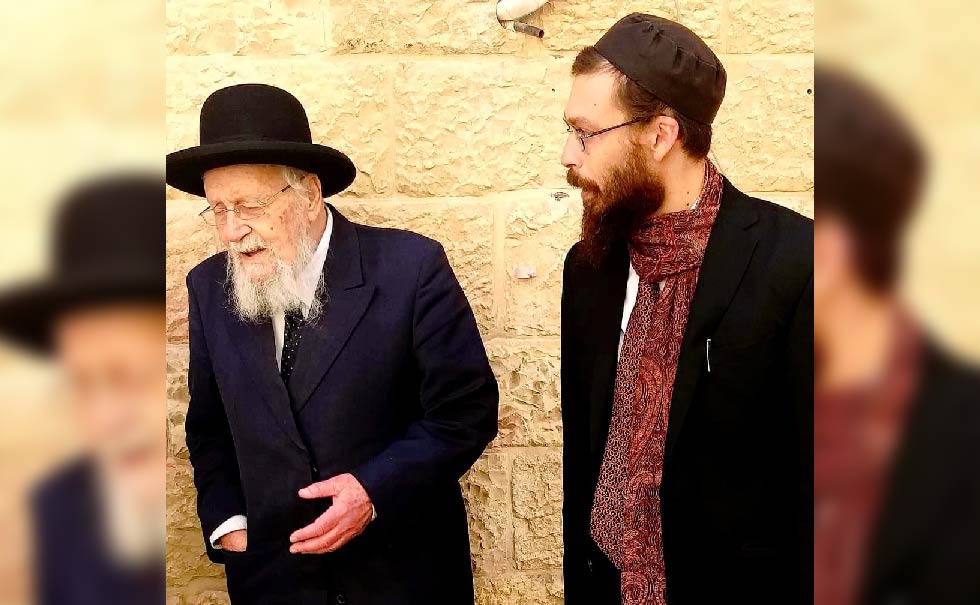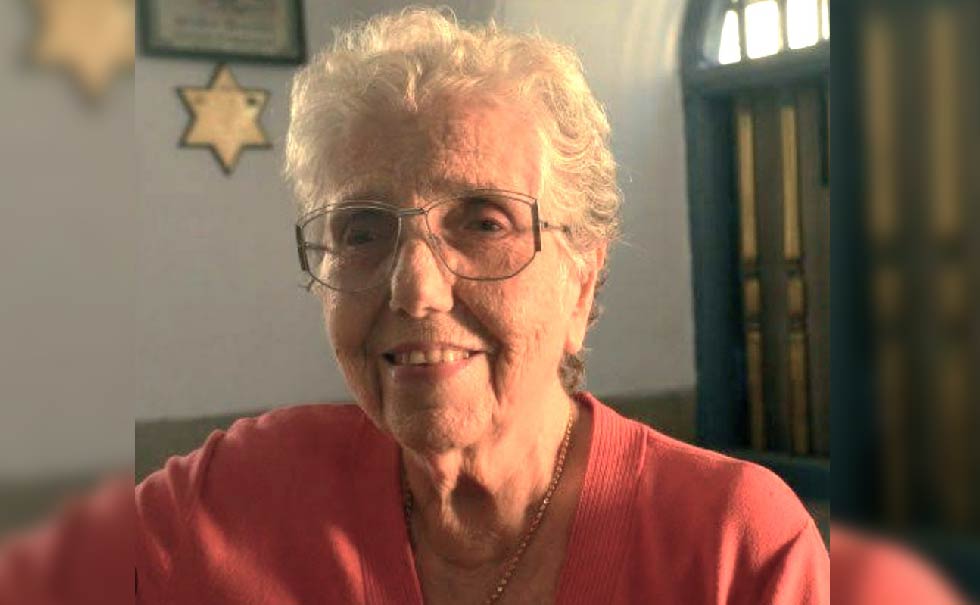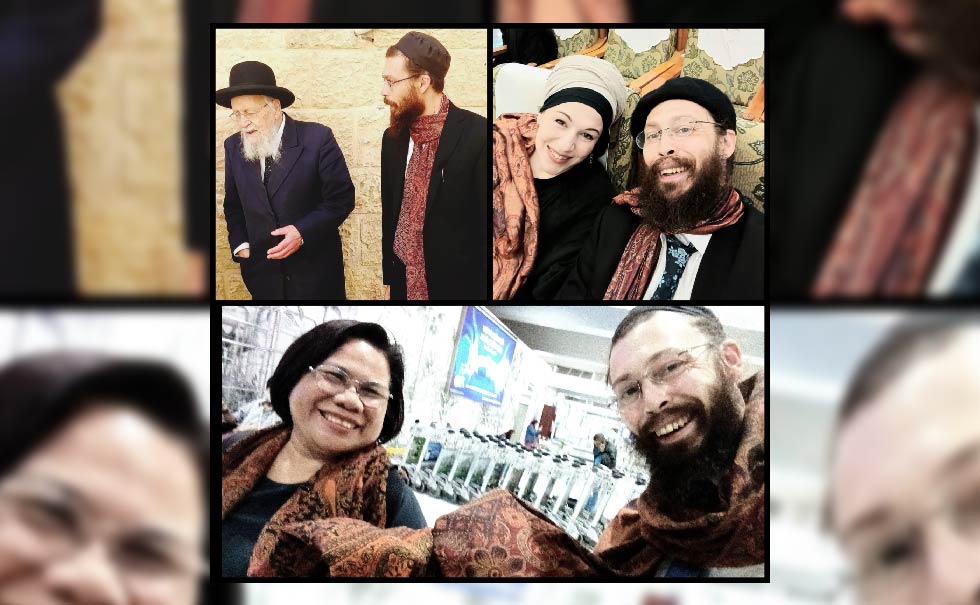On the passing of HaRav Yaakov Peretz
When my wife and I married in South Africa, we were introduced to Rabbi David Benchlouch who at the time was the Rabbi of the Cape Town Sephardic Hebrew Congregation, I had arrived from the UK and I was more than a little jetlagged when we entered the meeting to organise the wedding happening in about a week. What transpired was a very friendly meeting with a Talmud Chacham and we agreed on all the details aside from one: when I pushed towards what the cost of the Chuppah, meal and other elements of the wedding would be, the Rabbi simply said “no”.
I must admit that we were somewhat perplexed by this. We had saved and drawn up a budget and now the Rabbi was being extremely curt and refusing to take a penny.
“Perhaps the Rav would prefer a donation to the Synagogue?”
“No.”
“Or we can sponsor a meal or a Kiddush for the Kehila?”
“No – that won’t be necessary.”
The Rabbi smiled at me, then he said,
“If you really want to pay me for the wedding, then make me a promise – when you return to Jerusalem go to speak to Rabbi Yaakov Peretz.”
It seemed like the deal was far too good to be true. The wedding was beautiful and we settled into life in Cape Town, South Africa for two years whilst we planned our return to Jerusalem – we encountered frequent issues with our visa application and we made the decision that I would return to Jerusalem and await Elisheva and our daughter to make Aliyah.
True to my promise I visited the Midrash Sephardi Yeshiva in the Old City and sat in on a class with Rabbi Peretz and his approach to Halacha. Despite having a Yeshiva background and having even seen some of the sources previously, I was totally astounded – his teaching was exceptionally clear, his understanding of the law simple, direct and easy to understand. Within the words of the Torah, the sages and commentators he presented a complete system and structure.
This began a relationship that would eventually lead me to restart my Rabbinical ordination and return us as a family to live in Jerusalem to attend the Yeshiva. Aside from the Torah subjects I began regularly speaking to the Rabbi several times a week. It began with questions that I had regarding Jewish practice, law and Torah and quickly developed into the Rabbi’s interest in my life and personal thoughts, places I had travelled to, discussions of philosophy, music and other subjects – it seemed to me that the Rabbi was open to hear any opinion on any subject and that he greatly appreciated his dialogue and relationship with his students, who are an extremely diverse collective from across the spectrum of Judaism: all of them connected through their love and respect for the Rabbi.
Under his guidance we prepared for our first Rabbinical position in India and inundated him with questions about how to achieve our goals there of upholding the custom of the ancient Synagogue. We returned to him time and time again for his insight and understanding. As we began to travel more and visit other communities, we now needed the ability to send him questions via WhatsApp delivered to him by the other students in the Yeshiva; our questions ranged from normative day to day Halachic concerns such as Kashrut, conversions and burials to other emergencies and issues that arose: Over the years I was awarded two different Smeichot from the Rabbi and was immensely grateful for the amount of time that he invested in me in particular in our long discussions on the subject of Jewish Conversion.
As we travelled to various countries and undertook projects for the Jewish world it always seemed that, despite being thousands of miles away, we were always connected by an unbreakable thread to the Yeshiva in the Old City of Jerusalem. No matter where we were sent we had a phenomenal person and force behind us who believed in us, guiding us in what was more often dark than twilight and in situations that were rarely straightforward – we encountered dozens of moments whilst running Synagogues in the Far East when we needed his advice, advocacy and his experience.
He moved from Morocco to Israel at the young age of 15. He then spent over 20 years absorbed in study at the world famous Ponevezh Yeshiva in Bnei Brak where he was ordained as Rabbi by the Rosh Yeshiva Rabbi Kahaneman. Eventually Rabbi Peretz would become the Chief Rabbi of the Neve Yaakov district of Jerusalem as well as simultaneously the spiritual leader of the city of Hebron. He worked tirelessly to become the Rosh Yeshiva of the Shehebar Sephardic Center as well the Rosh Kollel of Kollel Hekhal Pinhas in Geulah. As an ordaining Rabbi he granted Smeicha to over 250 Scholars, many of whom now oversee and run communities around the world. In addition to these incredible achievements he chaired the Shiviti Beth Din helping people around the world to convert Halachically and penned 12 books on Halacha and Mussar.
The genius of Rabbi Yaakov Peretz was that in a world of complex stringencies and often politically driven legalism, the Rabbi always stood for Truth, simplicity and straightforwardness in keeping Torah. His kind and patient character made him immediately approachable. He did not become bothered or frustrated if we did not understand or needed to ask the same question several times, rather the opposite. He encouraged us to think and to speak out the question. The Rabbi wasn’t creating students, he was training other leaders. Despite belonging to the previous generation, he had his finger very much on the pulse of the current times and through this was in many ways like a bridge of perspective from another era.
The world has lost a great man who stood for Torah, Holiness and unwavering dedication to helping people whenever he was able to do so: I as well as many of his students remain in shock that he has passed and feel lost and without our spiritual father. We know that it was a tremendous privilege to know him and even greater to have studied his words and been exposed to his path in Torah.
May his family and students always have blessings and Nachat from his memory and preserve the teachings that he worked a lifetime to establish in Israel.
Amen.
Rabbi Jonathan Goldschmidt 2024 ©




